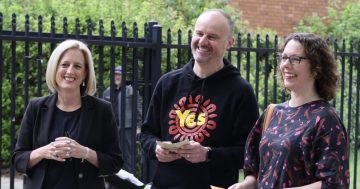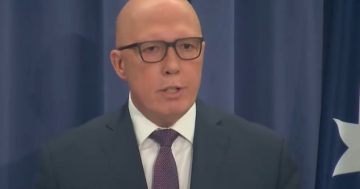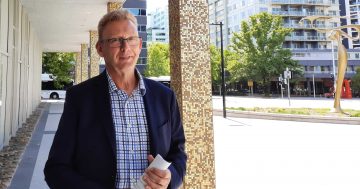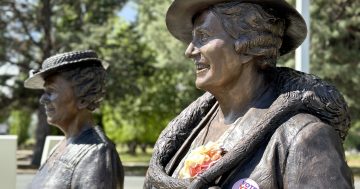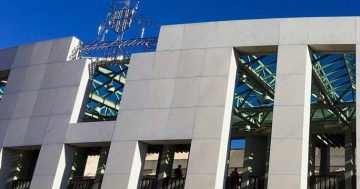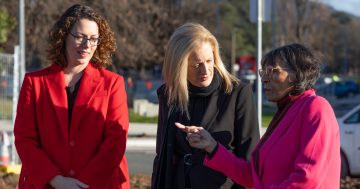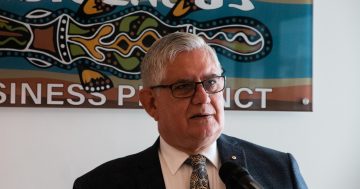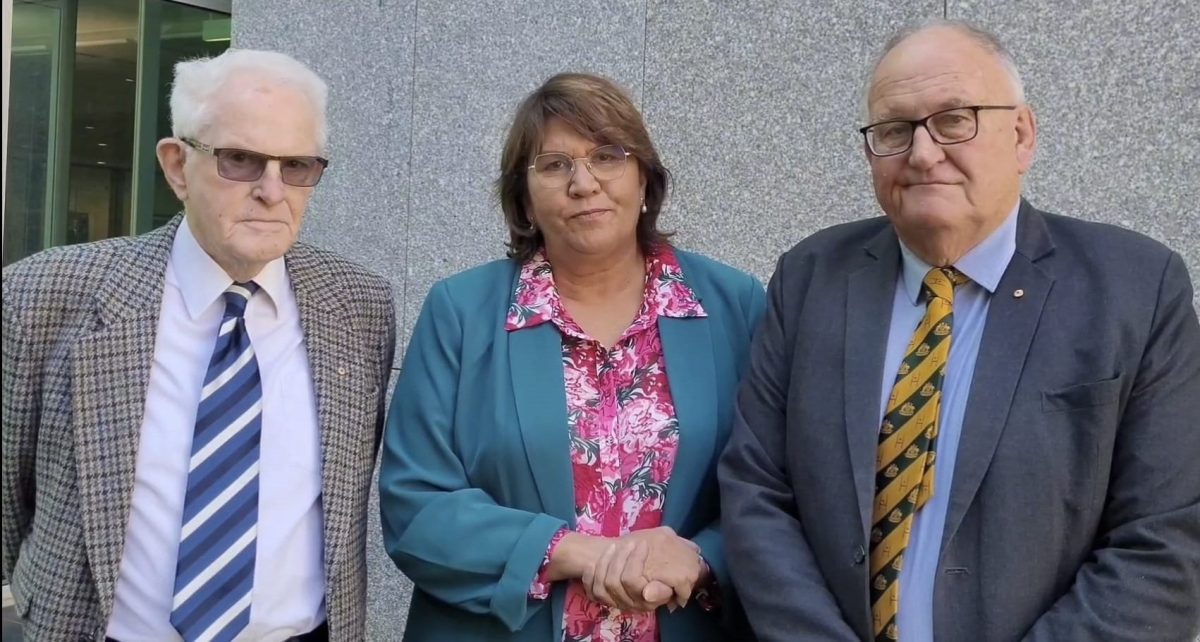
Former Canberra Liberals MLAs Greg Cornwall and Bill Stefaniak joined SA Senator Kerrynne Liddle (centre) to launch the ACT No campaign. Photo: Supplied.
Former Canberra Liberals heavyweights have come out in force at Parliament House to officially launch an ACT-centric campaign for the No vote on the Voice.
The referendum for the Indigenous Voice to Parliament has been set for 14 October, with the ACT Chief Minister already expressing his hope the Territory will have the highest Yes vote in the country.
Former Attorney-General and Liberals MLA Bill Stefaniak said while he understood the sentiment behind the Voice – and that it could be a reality given Canberra’s more left-leaning voting views and history of favouring referendums – he encouraged people to read each side of the argument.
“I simply encourage people, especially Federal public servants who will have to work out how to implement this … to inform yourselves, to look at it, don’t go for the vibe,” he said.
“This potentially has huge ramifications for Australia.”
Given some Liberals have come out in support of the Voice, the group wanted to let Canberrans know there were also those who had a different opinion.
Mr Stefaniak said they were “under no illusions” that Canberra will probably have a majority Yes vote, but that didn’t mean they shouldn’t try.
“We want to maximise the No vote. Even if we can change 2000 minds, we would be very happy,” he said.
“I wouldn’t be surprised to see the No vote [here] in the 40s [percentage range].”
Pushing the No case doesn’t mean the group completely dismisses the idea for Indigenous Australians to have a say in things that would impact them.
Rather, this group is aligned with the argument being made by those such as Warren Mundine and Jacinta Price that having one group to represent the voice of all Aboriginal and Torres Strait Islander Australians isn’t adequate.
“I can’t see the Voice helping at all … at best, it will be an extra layer of bureaucracy for the inner-city elite, which won’t represent those Indigenous Australians out in communities,” Mr Stefaniak said.
“How is this going to unite the country and not divide it? … [This] has the best intentions to help, but in reality it could create an underclass.”
The group doesn’t believe an Indigenous Voice should be enshrined in the Constitution; instead, it says state and territory governments should write laws that could then be repealed if it was discovered they weren’t working as intended.
“The big problem is having it in the Constitution. It could create huge problems because you basically can’t get rid of it,” Mr Stefaniak said.
“By all means, legislate as much as you want, because if it turns out you don’t like it, you can get rid of it.”
The uncertainty around how the Voice representative group would be chosen is another sticking point.
“We basically think it’s a crock of the proverbial as no one can explain how it will work, who is on it and who is not, which groups are on it and which ones aren’t, and how this will all work,” Mr Stefaniak said.
“It’s just a very dangerous concept to put up an idea when we have no idea how it will work in practice … and then on a wing and a prayer hope it works.”
Instead, Mr Stefaniak said the Constitution’s preamble could be changed to recognise not just Indigenous Australians but all communities who have come to Australia through migration.
“It can describe our rich, historical background of Indigenous peoples going back 65,000 years and the vibrant multicultural communities which have come since,” he said.
“Then everyone gets a guernsey … and it’s a statement of fact about who we are.”
Mr Stefaniak encouraged everyone to closely read both sides of the argument in the Australian Electoral Commission’s explanatory brochure, which has been arriving in every letterbox around the country.
“Don’t go on a vibe. Make an informed vote.”












